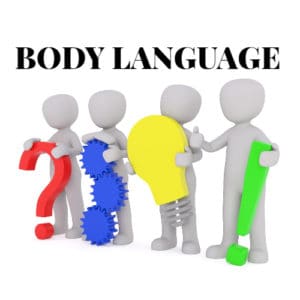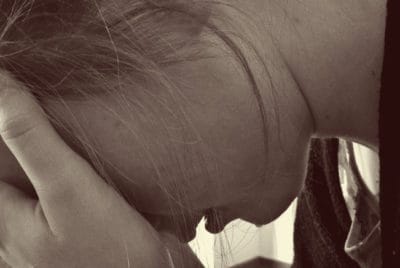Communication and Our Body Language
How often have you said these words, “I think you misunderstood what I just said” and end up apologizing. I know I have. And when it happens, I had to go back and replay the conversation so I could find out what I did wrong.
Our body language shows more than what we say verbally. It sends a more powerful nonverbal message to people who are watching and listening to us. The way we move our body, what we do with our eyes, facial expressions, posture, stance, hand movements, or gestures, significantly shows more than we can ever say with our words.
65% of what you communicate comes from body language, 28% of your message is tone, and only 7% is what you say. Over 90% of what we are communicating comes from our body language and not what we say. As they say, actions speak louder than words.
Expressions of Body Language
Facial Expressions
Our facial expressions show our emotions. We are happy, sad, angry, surprised, disgusted, afraid, confused, excited, our desires, and contempt.
It can show if we can trust or believe what somebody is saying.
Eyes
It’s been said that the eyes are the windows to our soul because it can convey so much. Eye contact can show interest and attentiveness. But, prolonged eye contact can make us feel threatened and uncomfortable.
Lip Movement
People who bite their lips, maybe worried, anxious, or stressed.
Lip tightening may show distaste, disapproval, or distrust
Chewing bottom lip can convey feelings of worry, fear, or insecurity.
Our smile may also be sincere. But it can also show sarcasm and skepticism.
Tone of Voice
The way we say things is more important than what we say. Your tone of voice: the volume, the emotion, and what words you emphasize when you speak is critical. Your tone of voice, along with your body language, will convey your real message.
Albert Mehrabian’s Theory of Communications states that our communication’s intent is conveyed by 7% in words, 38% in tone, and 55% in expression.
Brows
The way we position our brows during a conversation can also show acceptance or disbelief.
Gestures
We communicate through gestures such as hand movements or hand position. A clenched fist can show anger.
 Arms and Legs
Arms and Legs
Crossing the arms may show defensiveness, self- protection, or being closed off.
Hand on hips may show that you are in control, or a sign of aggressiveness.
Posture
Open posture is when the trunk of the body is open and exposed which indicates friendliness, openness, and willingness
Closed posture involves hiding the trunk of the body often by hunching forward and keeping the arms and legs crossed. This type of position can be an indicator of hostility, unfriendliness, and anxiety.
Personal Space and Distance
Edward Hall described four levels of social distance that occur in various situations:
Intimate Distance: 6 to 18 inches – indicates a closer relationship or greater comfort between individuals. It usually occurs during intimate contacts such as hugging, whispering, or touching.
Personal Distance: 1.5 to 4 feet – occurs between people who are family members or close friends. The closer the people can comfortably stand while interacting can be an indicator of the level of intimacy in their relationship.
Social Distance: 4 to 12 feet.-often used with individuals who are acquaintances.
Public Distance: 12 to 25 feet – often used in public speaking situations.
Know also that the level of personal distance that individuals need to feel comfortable can vary from culture to culture.
The Importance of Body Language
Our actions will significantly show the sincerity of our words, so we need to be aware, deliberate, and intentional in our body language so we can send the message we genuinely want to convey and not be misunderstood.
Our facial expressions, our eyes, our lip movement, our gestures, our hands and legs, our posture, and our distance communicates so much.
We also need to consider other cues such as context. So not just understanding body language but the framework by which the body language occurs. Also, remember to take into account gender and cultural differences.
As Jay Danzie puts it, “Your smile is your logo, your personality is your business card. How you leave after having an experience with you becomes your trademark.”
Source
https://www.verywellmind.com/understand-body-language-and-facial-expressions-4147228#citation-11




This design is spectacular!
You obviously
know how to keep a reader amused. Between your
wit and your videos, I was almost moved to start my
own blog (well, almost?HaHa!) Fantastic job.
I really enjoyed what you had to say, and more than that,
how you
presented it. Too cool!
Incredible story there. What happened after? Thanks!